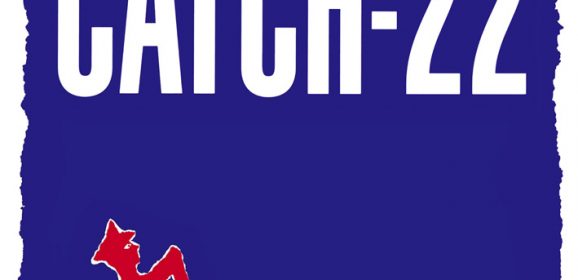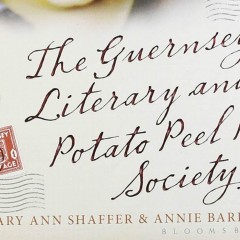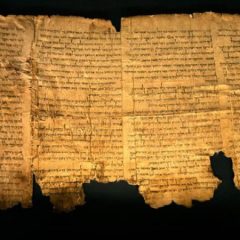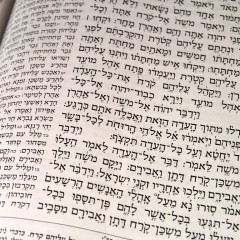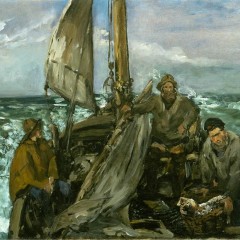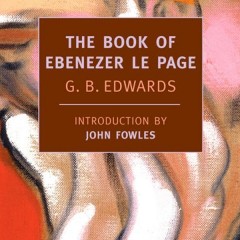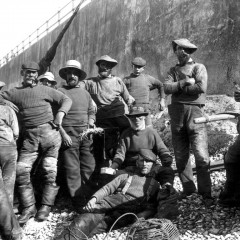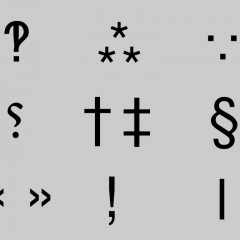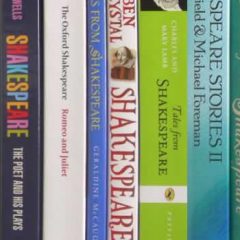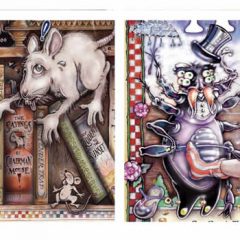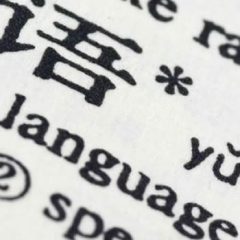English Literary Giant – Charles Dickens – ‘the cheerfullest man of his age’
On Friday the 7th of February 1812, in Portsmouth the greatest – or at least the most prolific – of the great 19th-century novelists, Charles Dickens was born. Lionised when alive, still venerated almost two centuries later, he penned a whole pantheon of unique works.
The Guernsey Literary and Potato Peel Pie Society – The Recipe
You’ve read the book … now eat the recipe !!
The Languages (& Translations) of the Bible – Linguistic Conundrums
Much of the Christian Bible was written in Greek so why don’t we read the Bible in Greek? How many languages has it been translated into? and Why does it matter? It turns out that the answer to the last question is very important indeed when you study the linguistic differences, subtle nuances and context in which writtings can appear within a passage of scripture.
Resurrecting a language – Hebrew’s remarkable story
Various new languages have been invented from time to time and you may even have heard of a few of them such as Klingon and Esperanto. However very few ‘dead’ or ancient languages have ever been revived on a national and international level. Hebrew is one of them. Another remarkable fact surrounding this is that it was all down to the work of one man.
Guernsey’s Place in Literary History – ‘Les Travailleurs de la Mer’ by Victor Hugo
Victor Hugo is, without a doubt, the most famous literary figure ever to have lived in the Channel Islands. He completed many of his most famous works whilst in exile from France in Guernsey. He wrote an entire novel in dedication to his adopted home, “Les Travailleurs de la Mer” – The Toilers of the Sea.
Chaucer – Medieval Master Wordsmith
English is a very rich languange indeed and is possibly the greatest gift that Britain has bestowed to the world. In this article we look at one of the oldest masters of them all Geoffrey chaucer, often described as the father of English literature.
The Book of Ebenezer Le Page – Quintessential Guernsey eh !
If you’ve ever stumbled across ‘The Book of Ebenezer Le Page’ (by G.B. Edwards, first published in 1981) and wondered if it’s worth the read – well, here is Guernsey Donkey’s humble opinion on the matter … read on
Old Guernsey Proverbs and Sayings
We’ve gathered together here some of the old Guernésiais proverbs and sayings that time seems to have forgotten.
Eleven Punctuation Marks you (probably) never knew existed
If you thought that you had a handle on all the punctuation marks in the English language then you might need to think again. In this article we look at some of the largely forgotten and esoteric punctuation symbols and characters that are technically still part of the English lexicon.
Les Misérables – The Guernsey Connection
Les Miserables. based on Victor Hugo’s novel of the same name, is the world’s longest running musical, now in its 28th year. The film adaptation of the stage show has brought this timeless story to a new audience. Although set against the backdrop of 19th century France, Victor Hugo finished writing his epic tale in Guernsey, an island he loved and upon which he has left an indelible mark. Although raised as a Royalist....
The Language of Shakespeare – Modern Terms Coined by the Bard
We really do speak the language of Shakespeare today. You will be amazed at the expressions and words that we commonly use and are attributed to the great bard himself.
Nursery Rhymes – Origins & History III
Behind every nursery rhyme is a history and story that’s every bit intriguing as the rhyme itself : Three Blind Mice; Mary Mary Quite Contrary; Pease-pudding Hot; Little Miss Muffet; Little Jack Horner
“Punctuation Marks Save Lives” – When Was Punctuation First Used in Language?
Punctuation really does add more meaning to the written word than we often give these little characters credit for. But when was punctuation first used in any language ?
The Origin of Writing
Writing – The invention that enabled science and knowledge to flourish. However it seems that is wasn’t invented for prose or love poems or literature but for the more mundane and prosaic task of taxation and bookkeeping.
Did English used to have gendered nouns? … Yes!
In Romance languages (and many others), nouns have a gender. English today doesn’t but it wasn’t always so. In this article we look at how this situation came about.

